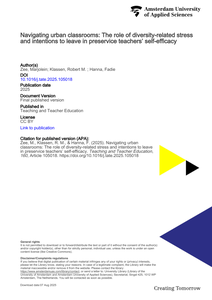Music interventions are used for stress reduction in a variety of settings because of the positive effects of music listening on both physiological arousal (e.g., heart rate, blood pressure, and hormonal levels) and psychological stress experiences (e.g., restlessness, anxiety, and nervousness). To summarize the growing body of empirical research, two multilevel meta-analyses of 104 RCTs, containing 327 effect sizes and 9,617 participants, were performed to assess the strength of the effects of music interventions on both physiological and psychological stress-related outcomes, and to test the potential moderators of the intervention effects. Results showed that music interventions had an overall significant effect on stress reduction in both physiological (d = .380) and psychological (d = .545) outcomes. Further, moderator analyses showed that the type of outcome assessment moderated the effects of music interventions on stress-related outcomes. Larger effects were found on heart rate (d = .456), compared to blood pressure (d = .343) and hormone levels (d = .349). Implications for stress-reducing music interventions are discussed.
DOCUMENT

Music interventions are used for stress reduction in a variety of settings because of the positive effects of music listening on both physiological arousal (e.g., heart rate, blood pressure, and hormonal levels) and psychological stress experiences (e.g., restlessness, anxiety, and nervousness). To summarize the growing body of empirical research, two multilevel meta-analyses of 104 RCTs, containing 327 effect sizes and 9,617 participants, were performed to assess the strength of the effects of music interventions on both physiological and psychological stress-related outcomes, and to test the potential moderators of the intervention effects. Results showed that music interventions had an overall significant effect on stress reduction in both physiological (d = .380) and psychological (d = .545) outcomes. Further, moderator analyses showed that the type of outcome assessment moderated the effects of music interventions on stress-related outcomes. Larger effects were found on heart rate (d = .456), compared to blood pressure (d = .343) and hormone levels (d = .349). Implications for stress-reducing music interventions are discussed.
DOCUMENT

This three-wave study examined relationships between preservice teachers’ diversity-related stress, teaching self-efficacy (TSE), and intentions to leave the profession. Participants (N = 386) from four Dutch teacher training programs completed surveys on diversity-related stress, intentions to leave, and TSE over 18 months. Random intercept cross-lagged panel models showed that higher diversity-related stress predicted lower TSE and increased intentions to leave. Within-person analyses revealed a complex reciprocal relationship: Highly self-efficacious teachers reported more stress and vice versa. Finally, intentions to leave led to lower TSE at Timepoint 3 only. Findings align with social-cognitive theory, highlighting the interplay between stress, TSE, and career intentions.
DOCUMENT
